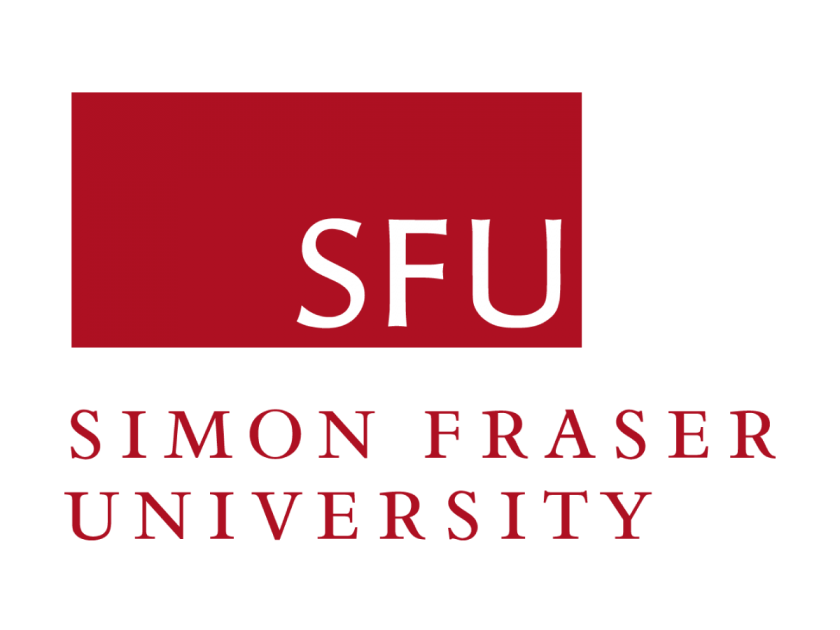Working-Class Voices on Screen: Pragmatic Realization of Criticism in Vietnamese Cinema
DOI:
https://doi.org/10.54855/ijli.25443Keywords:
Criticism Working-class Social equality InclusitivityAbstract
Criticism, as a pivotal speech act, often threatens the addressee’s face and engages complex politeness norms. While previous research has extensively examined criticism, few studies have focused on how working-class speakers navigate these interactions, particularly within authentic, everyday contexts. This study examines the criticism strategies employed by Vietnamese working-class individuals as depicted in contemporary cinema, aiming to bridge a significant research gap and bring implications to how language is educated. From conversations in popular Vietnamese web dramas, this study employs discourse analysis and quantitative methods to uncover how criticism speech acts are performed by the working class. Findings reveal that direct criticism, predominantly in the form of negative evaluation, is the most frequent strategy among working-class characters. However, indirect strategies such as sarcasm and rhetorical questioning are also commonly utilized, adding emotional nuance and providing face-saving mechanisms. Importantly, both age and social distance are shown to influence criticism: peer interactions favor directness, whereas mixed-age exchanges balance direct and indirect approaches; moreover, as familiarity increases, speakers employ less direct criticism. These findings not only illuminate class-based communication in Vietnamese culture but also have practical implications for developing culturally relevant language teaching materials and fostering cross-cultural understanding.
References
Al Jdayeh, G. Y. (2023). Critical strategies featured on the “Arab Idol” and “American Idol” shows. Theory and Practice in Language Studies, 13(6), Article 21. https://doi.org/10.17507/tpls.1306.21
Al Kayed, M., & Al-Ghoweri, H. (2019). A socio-pragmatic study of speech act of criticism in Jordanian Arabic. European Journal of Scientific Research, 153(1), 105–117.
Alshakhanbeh, S., & Alghazo, S. (2022). A pragmatic analysis of criticism strategies against government policies on social media in Jordan: A gender-based investigation. Jordan Journal of Modern Languages and Literatures, 14(2), 263-286.
Austin, J. L. (1962). How to do things with words. Clarendon Press
Bernstein, B. (1971) Class, Codes and Control. Volume 1: Theoretical Studies towards a Sociology of Language. Routledge & Kegan Paul, London. http://dx.doi.org/10.4324/9780203014035
Brown, P., & Levinson, S. C. (1987). Politeness: Some universals in language usage. Cambridge University Press.
Cambridge University Press. (2003). Cambridge Advanced Learner’s Dictionary (4th ed.). Cambridge University Press.
Chaika, E., & Tannen, D. (1985). Conversational Style: Analyzing Talk among Friends. Language, 61(4), 912. https://doi.org/10.2307/414501
Culpeper, J. (2011). Impoliteness: Using Language to Cause Offence. Cambridge University Press.
De Moura, E. O., & De Souza Bispo, M. (2019). Sociomateriality: Theories, methodology, and practice. Canadian Journal of Administrative Sciences / Revue Canadienne Des Sciences De L Administration, 37(3), 350-365. https://doi.org/10.1002/cjas.1548
Do, T.B. (2012). Đặc điểm cấu trúc, ngữ nghĩa và ngữ dụng của lời khen, lời chê trong tiếng Việt (so sánh với tiếng Anh). (PhD Thesis, National University - Ho Chi Minh City University of Social Science and Humanity).
Do Nascimento, J. (2019). Art, cinema and society: Sociological perspectives. Global Journal of Human Social Science Research:(C) Sociology& Culture, 19(5), 19-28.
El Dakhs, D. A. S., Ambreen, F., Zaheer, M., & Gusarova, Y. (2019). A pragmatic analysis of the speech act of criticizing in university teacher student talk: The case of English as a lingua franca. Pragmatics, 29(4), 493–520. https://doi.org/10.1075/prag.18028.eld
Goffman, E. (1967). Interaction ritual: Essays on Face-to-Face Behavior. Anchor Books.
Hall Edward T. (1976). Beyond Culture. Anchor Books.
Haristiani, N., & Afiana, Q. (2022). How Do the Japanese Criticize? In ICOLLITE 2022 Proceedings.
Haristiani, N., Septiana, A., Nor, N. F. M., & Ryota, N. (2023). The politeness of criticism speech acts in Japanese and Minangkabau films. Indonesian Journal of Applied Linguistics, 13(1), 131–148. https://doi.org/10.17509/ijal.v13i1.58272
Hiraga, M. K., & Turner, J. M. (1996). Differing Perceptions of Face in British and Japanese Academic Settings. Language Sciences, 18, 605-627.
Ho, T. N., & Tran, T. V. (2022). Judges’ criticisms in the Voice of America. Language and Life, 6A (326), 163–174.
Hoang, T. B. (2023). Gender Differences in Politeness Strategies in Negotiations in Sharktank America and Sharktank Vietnam: A Contrastive Analysis. International Journal of Language Instruction, 2(2), 21-36. https://doi.org/10.54855/ijli.23222
Hoang, T.X.H. (2007). Criticizing behaviors by the Vietnamese and the American: topics, social factors and frequency. VNU Journal of Science, Foreign Languages 23, 141-154.
Le, T. K. D. (2021). Characteristics of traditional Vietnamese family and its influence on communication culture in the family. Anthropological Researches and Studies, 1(11), 49–64. https://doi.org/10.26758/11.1.4
Mills, S. (2004). Class, Gender and Politeness. Multilingua, 23, 171-190.
Muir, J. A., Braudt, D. B., Swindle, J., Flaherty, J., & Brown, R. B. (2018). Cultural Antecedents to Community: An evaluation of community experience in the United States, Thailand, and Vietnam. City and Community, 17(2), pp. 485-503. https://doi.org/10.1111/cico.12300
Mulac, A., Seibold, D. R., & Farris, J. L. (2000). Female and male managers’ and professionals’ criticism giving: Differences in language use and effects. Journal of Language and Social Psychology, 19(4), pp. 389–415. https://doi.org/10.1177/0261927X00019004001
Ngo, T. H. T. (2022). Using Apology Strategies in Letters by EFL Students at University of Foreign Language Studies – The University of Danang. International Journal of Language Instruction, 1(2), 1-12. https://doi.org/10.54855/ijli.22121
Nguyen, L.T.P. (2020). High – Low Context Communication: Vietnamese Style. Vietnam Journals Online,39, 101-111
Nguyen, Q (2019). Trở lại vấn đề diễn dịch trong giao tiếp. Tạp chí Nghiên cứu Nước ngoài, 35 (2), 1-14.
Nguyen, T. T. M. (2005). Criticizing and responding to criticism in a foreign language: A study of Vietnamese learners of English (Doctoral dissertation, University of Auckland). University of Auckland.
Nguyen, T.T.M. (2008). Modifying L2 criticisms: How learners do it? Journal of Pragmatics, 40 (4), 768- 791. https://doi.org/10.1016/j.pragma.2007.05.008
Nguyen, T.T.M. (2013). An Exploratory Study of Criticism Realization Strategies used by NS and NNS of New Zealand English. Multilingua: Journal of Crosscultural and Interlanguage Communication, 32 (1), 103- 130. http://dx.doi.org/10.1515/multi- 2 013-0005
Rizki, S., & Golubović, J. (2020). An analysis of speech act of omar mukhtar’s utterances in lion of the desert movie. Englisia Journal of Language Education and Humanities, 7(2), 210. https://doi.org/10.22373/ej.v7i2.6358
Searle J. R. (1969). Speech Acts. Cambridge University Press.
Shi, Y., & Lei, L. (2021). Lexical use and social class: A study on lexical richness, word length, and word class in spoken English. Lingua, 262, 103155. https://doi.org/10.1016/j.lingua.2021.103155
Tracy, K., Van Dusen, D., & Robinson, S. (1987). "Good" and "bad" criticism: A descriptive analysis. Journal of Communication, 37(2), 46–59. https://doi.org/10.1111/j.1460-2466.1987.tb00982.x
Truong, V. D. (2015). Modal factors in criticizing utterances in Vietnamese: A contrastive analysis with English (Doctoral dissertation, University of Social Sciences and Humanities, Vietnam National University – Ho Chi Minh City)
Wierzbicka, A. (1987). English Speech Act Verbs: A Semantic Dictionary. http://ci.nii.ac.jp/ncid/BA01389390
Yang, Y. (2013t). Gender differences in realization patterns of disagreement in Chinese. In Proceedings of the 2013 International Conference on Education, Management and Social Science (ICEMSS 13), 154–157. Atlantis Press. https://doi.org/10.2991/icemss.2013.41
Yule, G. (1996), Pragmatics. Oxford University Press.
Downloads
Published
Issue
Section
License
Copyright (c) 2025 Pham Huong Ngoc Uyen

This work is licensed under a Creative Commons Attribution 4.0 International License.
The copyright of all articles published in the International Journal of Language Instruction (ijli) remains with the Authors, i.e. Authors retain full ownership of their article. Permitted third-party reuse of the open access articles is defined by the applicable Creative Commons (CC) end-user license which is accepted by the Authors upon submission of their paper. All articles in the ijli are published under the CC BY-NC 4.0 license, meaning that end users can freely share an article (i.e. copy and redistribute the material in any medium or format) and adapt it (i.e. remix, transform and build upon the material) on the condition that proper attribution is given (i.e. appropriate credit, a link to the applicable license and an indication if any changes were made; all in such a way that does not suggest that the licensor endorses the user or the use) and the material is only used for non-commercial purposes.
Authors are able to enter into separate, additional contractual arrangements for the non-exclusive distribution of the journal's published version of the work (e.g., post it to an institutional repository, in a journal or publish it in a book), with an acknowledgment of its initial publication in this journal.











